Estimated reading time: 8 minutes
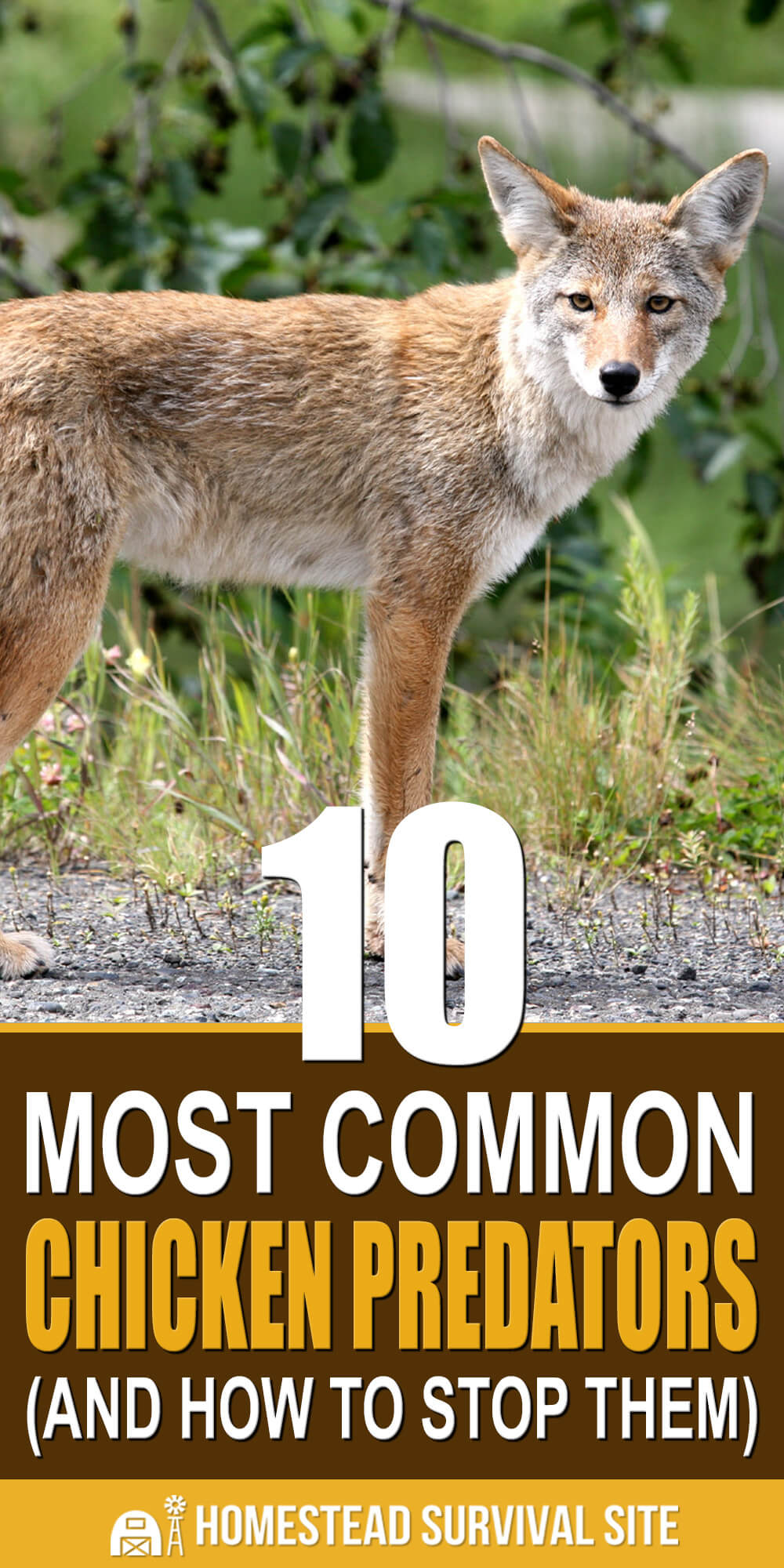
Having chickens on the homestead is one of the best ways to make sure that your household has a steady supply of food. Whether you gather the eggs for fresh omelets, or raise meat chickens for future dinners, caring for chickens is a worthwhile experience.
Many country residents start their homesteads with chickens thanks to their ease and predictability. They don't require much space and are great at making use of all of those scraps from the kitchen. There is also nothing quite like a farm-fresh egg compared to store-bought options.
Want to save this post for later? Click Here to Pin It on Pinterest!
However, owning chickens and caring for them can draw attention from predators to the homestead. If you haven't learned already, you'll notice that these predators can come from land or sky and it is quite normal to lose a few chickens each year.
Chickens are a valuable resource to homesteads, and their loss is felt in egg production. To protect your land and your food supply, learn more about these common chicken predators (and how to stop them):
Dogs, Coyotes, & Wolves
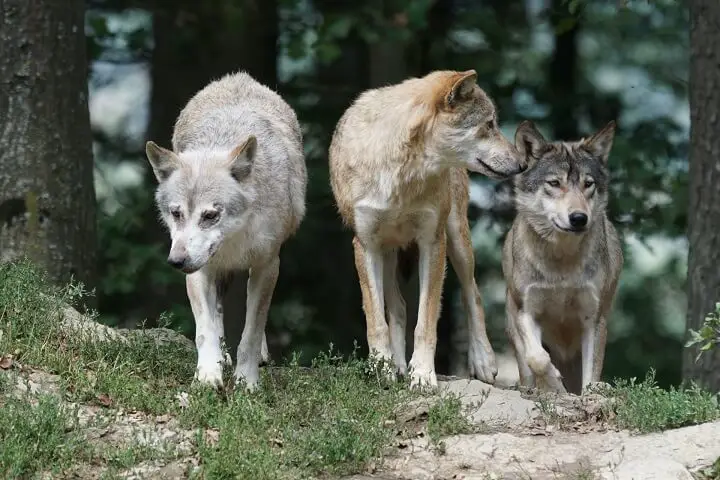
Many homesteaders have some dogs on the property. Whether you have an outside or inside dog, they can get bored enough to chase a chicken or two in their younger years. Part of training a good farm dog is to keep them from attacking the chickens.
Taking the time to teach a puppy to ignore chickens will be worth it in the long run. Most farm dogs learn to leave chickens alone, but some breeds are harder to break the habit.
You may also have coyotes and wolves in your area depending on where you homestead. They both usually hunt in packs so if you see or hear one, you can bet there is a group of them. Coyotes love to wait outside the perimeter of a homestead, beyond what your outdoor light can reach.
You will rarely see wolves or coyotes during the day as well. The best way to protect your flock is to make sure their roost is securely locked from dusk to dawn.
Hawks
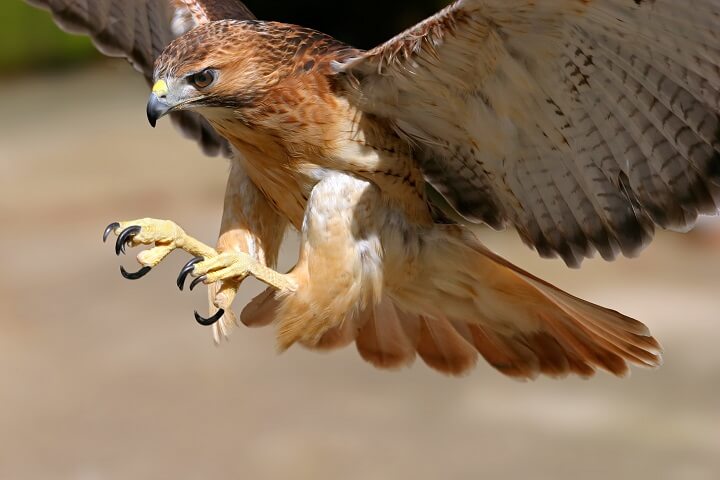
One of the hardest predators to protect against is a hawk. These large birds can fly onto your property without your knowledge. Hawks like to sit in a nearby tree and watch the chickens until they decide which one to attack.
Most hawks attack chickens during broad daylight hours and will usually pick the carcass apart. You'll know you have a hawk when you find the remains of a chicken in an area of the yard that is wide open and easy to see.
The easiest way to protect against hawks is to keep your chickens in a fenced-off area. You may have to fence the top of the chicken run to keep predators from entering your chicken yard as well. For those of us who let our chickens free-range, there is little you can do to protect your chickens.
The best option is to get a few roosters that can help protect the hens during the day. Making sure that there are also plenty of places for chickens to hide in the yard, like under bushes or within small barriers, will help deter a hawk from trying to attack.
Foxes
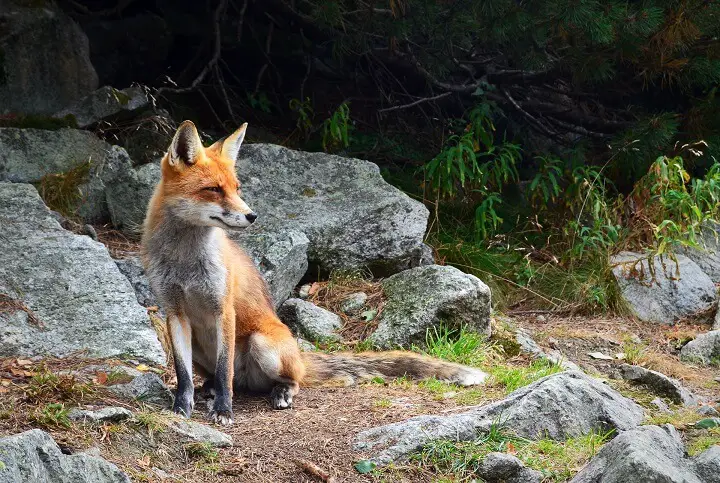
“Sly as a fox” is an old saying for a reason. Many homesteaders don't think about foxes because they are sly to begin with. You can live on your property for years and never see a family of foxes that may live a few hundred feet away. Foxes are sneaky, quiet, and great hunters. Oftentimes, they will hunt a chicken from a nearby field or crop and will take the entire chicken back to their den.
You will know that you have a fox stalking your coop when you are missing a chicken or two and only find a few feathers on the ground. We know of homesteaders who have witnessed a fox jumping out from the field line, grabbing a chicken, and making off with it without a sound.
The best way to guard against foxes from taking chickens is to make sure that your boundaries are secure. Again, foxes like to lie in wait just beyond the perimeter of a property. If you keep your chickens somewhere in the middle of the yard, you should have less loss to foxes.
Another helpful tip is always to lock up your chickens at night. Make sure they are safe and secure at dusk and don't let them out too early in the morning.
Weasels & Minks

This sneaky predator can be the worst nightmare for a homesteader. Weasels and minks are hard to see and fight against because they are so quick and live underground.
You will know that a weasel has killed a chicken when the entire chicken remains with a bite mark at the neck. Weasels and minks usually don't stop at one chicken but can destroy the whole flock in one setting.
Protect your chickens from weasels by making sure that your hen house is secure at the base. Adding fencing or wire on the ground around the base of a coop, known as a predator apron, deters predators from digging underneath the building structure itself. Mending any holes or weak areas of the coop will also help keep these sneaky predators away.
Raccoons
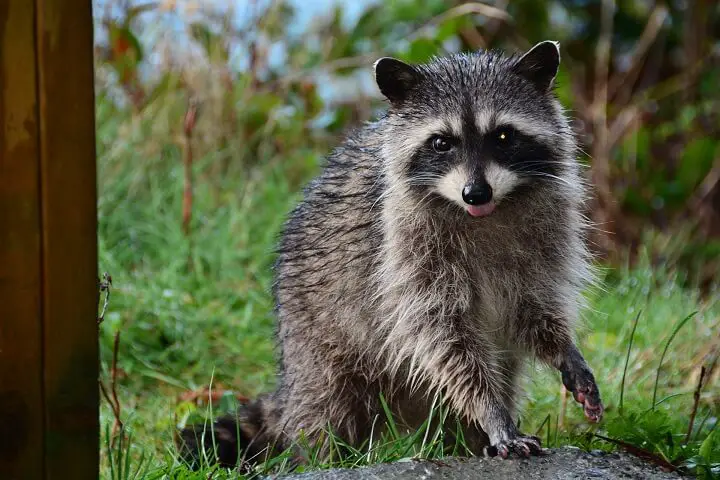
Commonly known as “trash pandas,” raccoons usually are more interested in easy food sources like your trash pile or feed storage. They are smart creatures that can figure out how to open simple locks and doors.
Raccoons usually prefer to steal eggs and baby chicks than kill a mature hen. However, given the right circumstances, a raccoon can kill when needed. If you find your chicken without a head, you can be pretty sure that raccoon was your culprit.
Protect your flock from raccoon attacks by lining the bottom few feet of your chicken fence with hardware cloth. This will keep the raccoons from being able to reach in a grab a chicken. Other deterrents include installing complicated hardware that a raccoon wouldn't be able to open or figure out.
Making sure that your pen is not too narrow so that the chickens are always near the fence, can help protect against raccoons as well. Gathering the eggs every day will also cut down on attracting a raccoon to the hen house.
Bobcats & Barn Cats
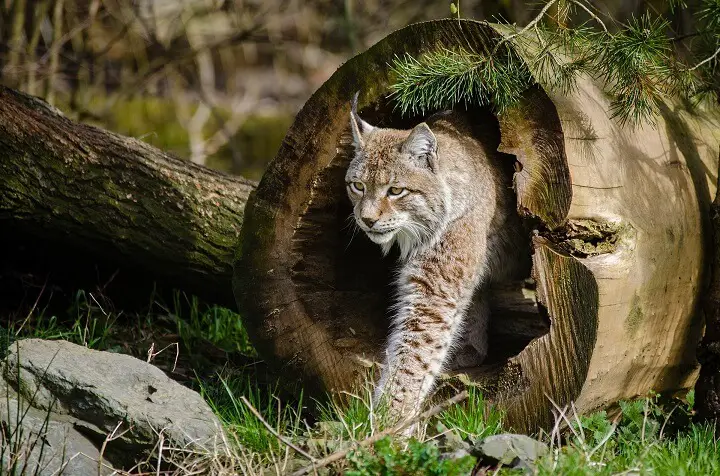
While some homesteaders may not have bobcats in their area, any cat can be a predator to chickens. Most barn cats will attack a baby or younger chicken if they are hungry enough. The best way to keep your essential barn cats from attacking chickens is to feed them when they haven't had a mouse kill in a while.
Bobcats also kill chickens that are not adequately secured. You'll know that you have a bobcat stalking the hen house when you find a partially covered up carcass. Again, keep your flock safe from cats by making sure the hen house and chicken yard are secure with sturdy fencing.
If you have had chickens for very long, you have probably lost a hen or two. This is a natural part of having a homestead, and losses do happen. However, when your coop is being attacked regularly, you know that you need to secure your chickens better.
Knowing what kind of predators live in your area, as well as how to protect against them, are the first steps to ensuring that you have a steady supply of food for your family. Remember these tips to keep your hens safe.
Like this post? Don't Forget to Pin It on Pinterest!




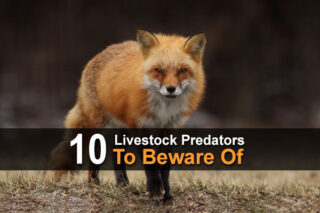
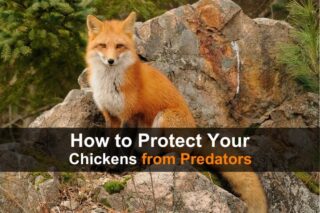
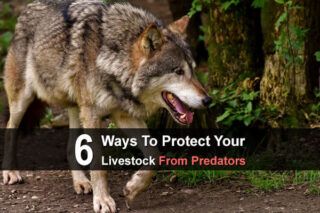

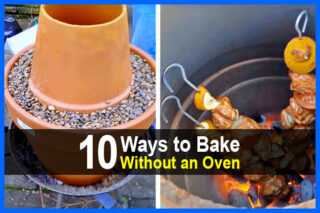


you forgot one of the worst SKUNKS
We free range our chickens, we don’t even lock them up at night, but we do have a coop area. We do have a secure “nursery” until they are old enough to roost high enough off the ground to be safe overnight.
Our greatest predator is hawks.
The coyotes we deal with are usually solitary and during the day. Occasionally you might see a male/female pair.
Our most destructive predator is opossum. We’ve had a couple break into the nursery area and kill multiple chickens in the same night. They only eat the entrails, then kill another chick. We lost 13 of 15 one night but got the opossum. ?
Reinforce your nursery! Unless raising meat chickens, they will protect themselves by a secure roost.